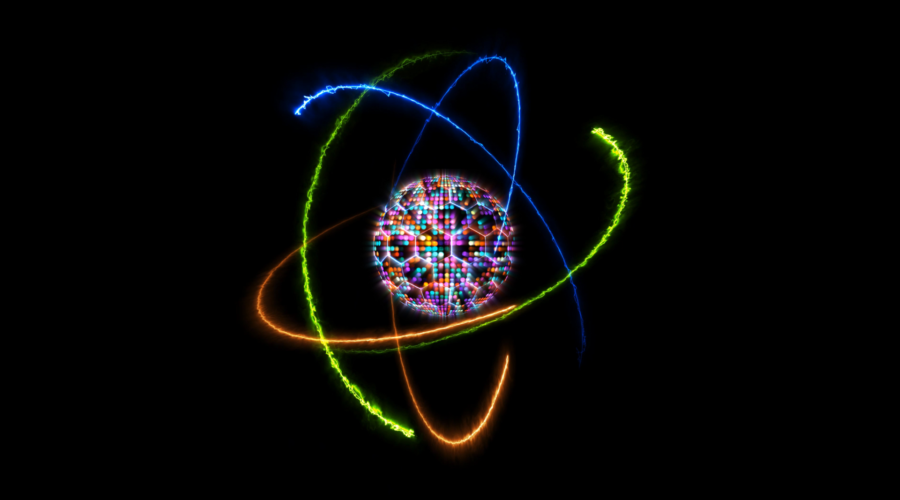IMDEA Networks

IMDEA Software and IMDEA Networks work to deploy in the Community of Madrid "MadQCI": Europe's largest quantum network
MADQuantum-CM is a project funded by the Community of Madrid, the Spanish State through the Plan for Recovery, Transformation and Resilience, and the European Union through the NextGeneration EU funds
31 May 2023

IMDEA Software and IMDEA Networks Institutes participate together with six other partners (Instituto Nacional de Técnica Aeroespacial, Centro Español de Metrología, Fundación Vithas, Universidad Autónoma de Madrid, Universidad Politécnica de Madrid and Universidad Complutense de Madrid) in the MADQuantum-CM project, funded by the Community of Madrid, the Spanish State through the Plan for Recovery, Transformation and Resilience, and the European Union through the NextGeneration EU funds. The objective of the project is the expansion of MadQCI, the new quantum communications network of the Community of Madrid and the largest quantum network in Europe.
Quantum computing and quantum communications have the potential to become a paradigm shift in computer networks. In this sense, MadQCI will connect, through a metropolitan fiber optic deployment, data centers of the universities of the Community of Madrid and the IMDEA Software and IMDEA Networks Institutes. The network will allow the permanent hosting of quantum communications equipment, enabling the validation of new key exchange technologies, as well as the development of use cases and innovations that take advantage of the infrastructure, which will be deployed by REDIMadrid, the advanced data network of the Community of Madrid, managed by IMDEA Software.
“Quantum key exchange technology has a very large disruptive potential, as it guarantees key exchange and consequently secure communications between remote centers,” explains César Sánchez, director of REDIMadrid, Senior Researcher at IMDEA Software and principal investigator at IMDEA Software on the project. “Europe has a world leadership in quantum technologies, and in the coming years we will see many academic as well as industrial advances in quantum communications,” he continues.
“This technology will not only improve the performance and capacity of networks, but will change the very foundations, completely changing computing platforms,” as Albert Banchs, Deputy Director of IMDEA Networks and principal investigator of the project at IMDEA Networks, explains. Furthermore, “quantum communications will be beneficial, from a social point of view, as they help to create highly sensitive data transmission networks based on a process called quantum key distribution, or QKD, which takes advantage of the laws of quantum physics to protect data. This technology is already used, for example, by financial institutions, but extending it to other areas would require major innovations. The project will also help to foster the development of new local quantum technology companies,” says Ignacio Berberana, Senior Research Engineer at IMDEA Networks and a participant in the project together with the Institute’s Edge and Global Computing research groups.
MADQuantum-CM aims to show how quantum security solutions can be used throughout the scientific network infrastructure of the Community of Madrid in a transparent manner. Among its aims is also to create several testbeds and demonstrations to show how quantum networks and communications can be used by potential stakeholders. As Berberana points out, two of the areas to be explored in this project will be the application of quantum cryptography and quantum communications to support new networks, such as the future 6G networks.
In addition, it seeks to develop an innovation and training ecosystem to help grow the technology and supply chains for quantum communications technologies and services in Madrid and Spain (through collaboration with other regional quantum communications projects). The network infrastructure deployed by the project is expected to form the basis of a permanent quantum network that will enable continued innovation beyond its lifetime. Ultimately, these projects build on the extensive quantum communications expertise of their participants.
“In the case of IMDEA Software, its participation in the European OpenQKD project, which culminated at the beginning of 2023, made it possible to build on the REDIMadrid network the largest European quantum communications testbed, the germ of the current MadQCI network”, highlights Sánchez. “In the case of IMDEA Networks, the project is based on the results of the European 5G Vinni and OpenQKD projects,” says Berberana.
*The Madrid Community Complementary Quantum Communications Plan (MADQuantum-CM) is funded by the Community of Madrid and MCIN with NextGenerationEU funds from the European Union’s Recovery and Resilience Mechanism (RRM), in the framework of the Recovery, Transformation and Resilience Plan of the Spanish State (PRTR-C17.I1).




Recent Comments